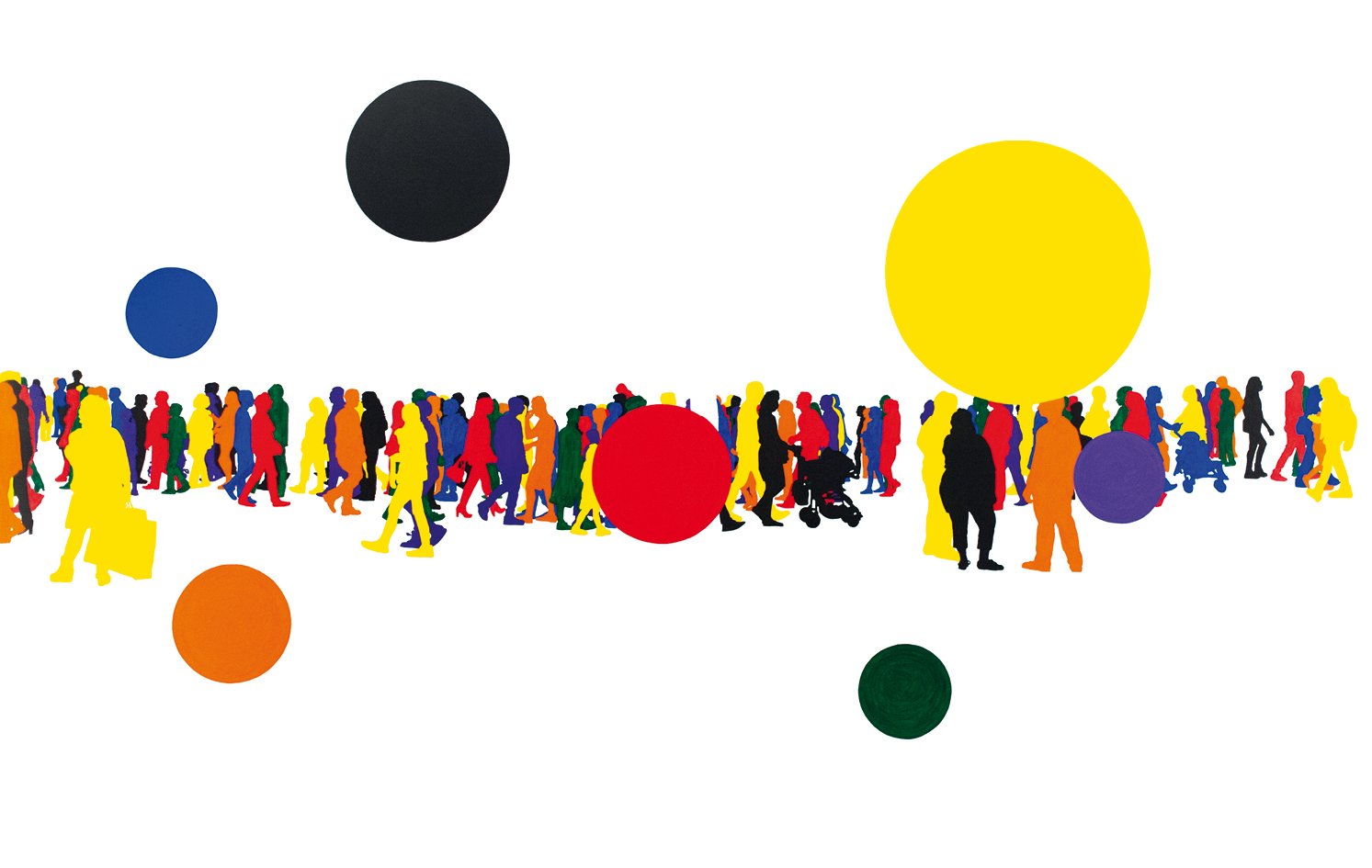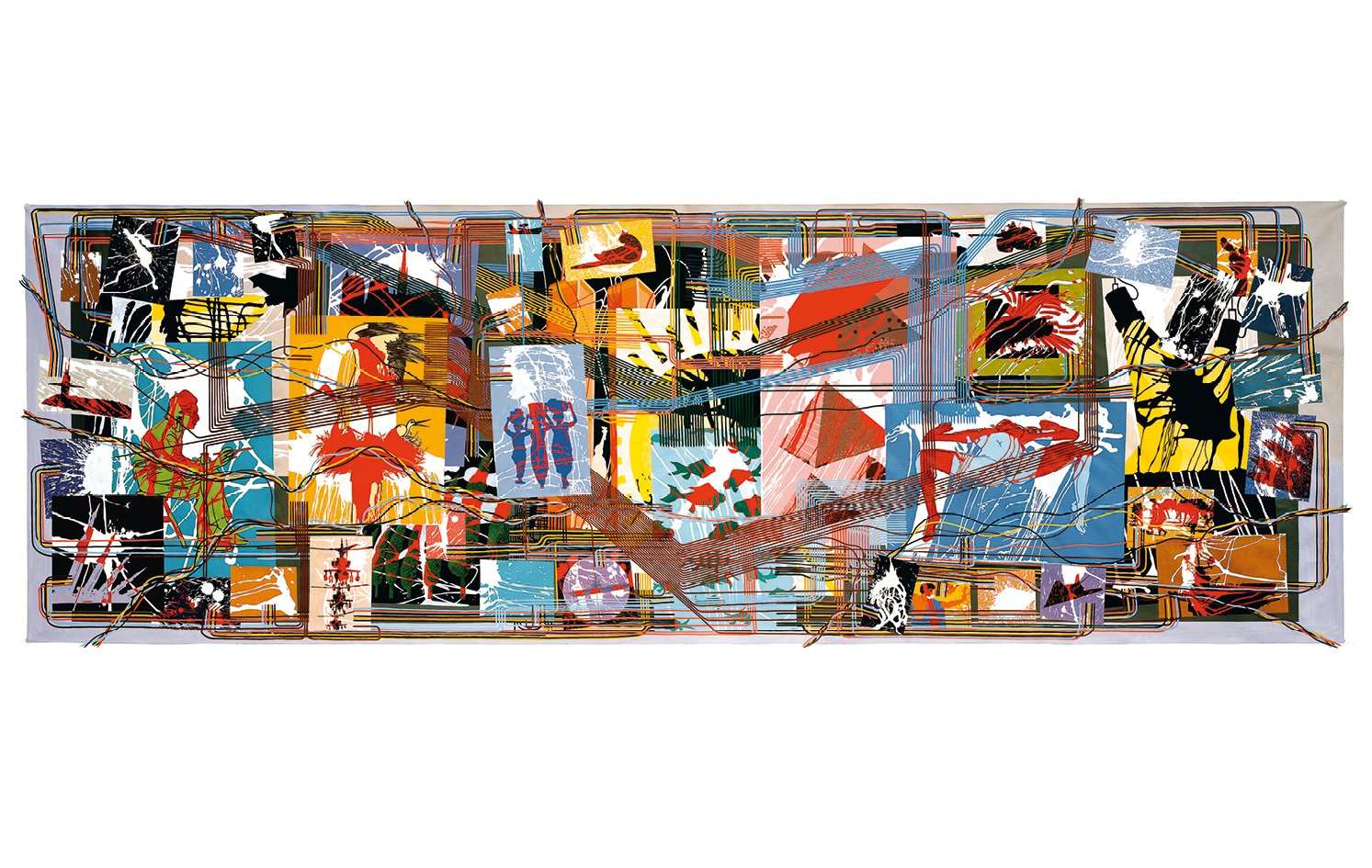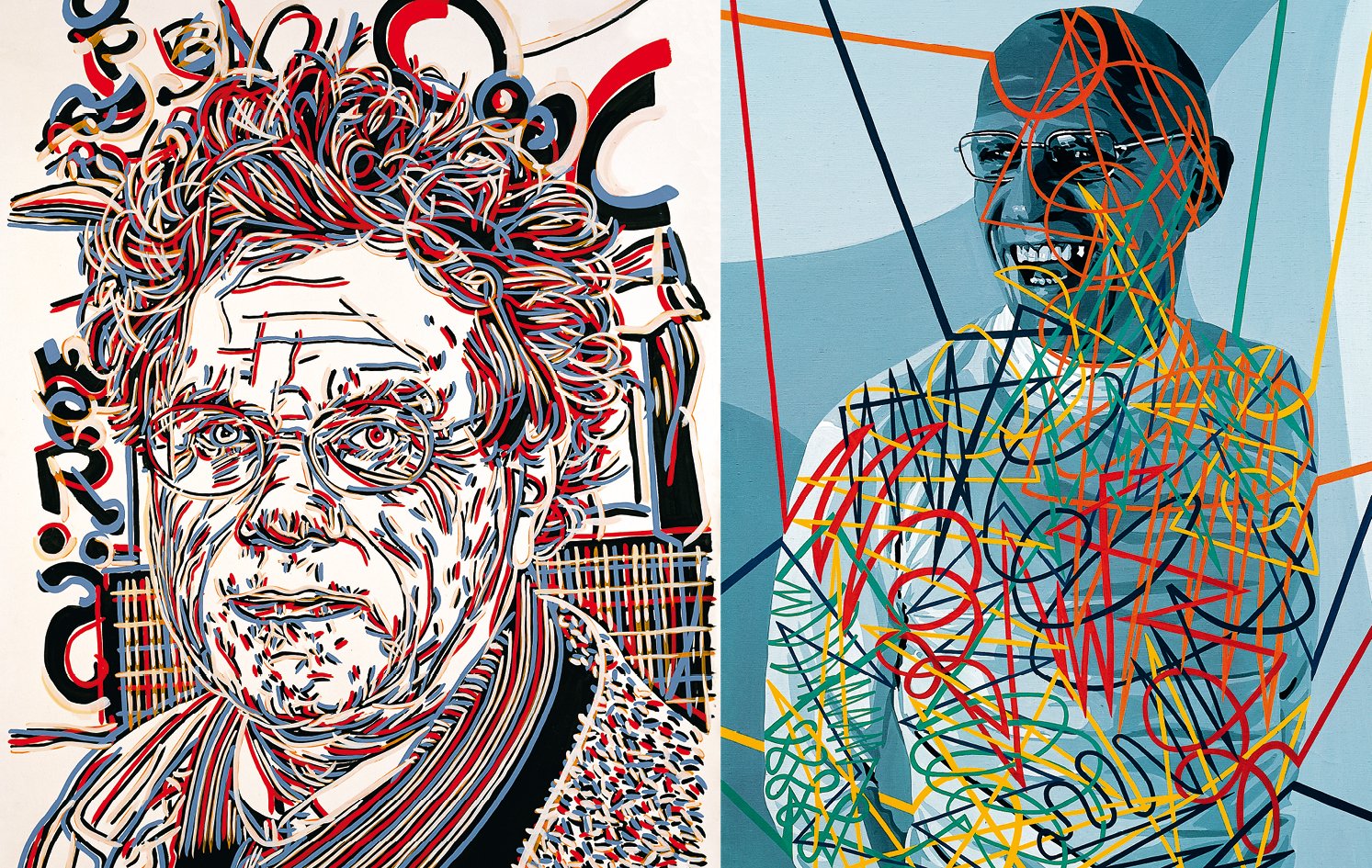Arafat Sadallah
Un trait de mémoire, par Nidhal Chamekh
Le temps à l’œuvre du dépliement Une œuvre d’art et un soulèvement politique ont ceci de commun qu’ils révèlent le déploiement d’une vérité historique. Ils ouvrent à chaque fois, unique, un espace et un temps où adviennent, en un clin d’œil, toutes les possibilités du monde : où les choses et les êtres parlants acquièrent une … Continuer la lecture de Arafat Sadallah
Un trait de mémoire →
Clichés, par Cora Novirus
L’image du Covid 19 – petites taches orangées accrochées à des cils de cellules bleus sur un fond gris – renvoie à un imaginaire de peinture abstraite ou d’effets spéciaux : final halluciné de 2001, l’Odyssée de l’espace de Stanley Kubrick (1968), ou plongée psychédélique dans l’explosion atomique de Twin Peaks : The Return de David Lynch (2017). À … Continuer la lecture de Clichés →
Monnaie, par Cora Novirus
Au moment même où ils coupaient le circuit des flux économiques et sociaux, les gouvernements de la moitié de la planète suspendaient toute règle budgétaire et se lançaient dans une création monétaire massive. En un clin d’œil, on est passé de la nécessité de réduire la dette publique à l’urgence de promouvoir son « accroissement1 … Continuer la lecture de Monnaie →
L’hétérogènese différentielle
Formes en devenir entre mathématiques, philosophie et politique, par Alessandro Sarti et Igor Pelgreffi
L’image-transaction
What You See Is Not What You Get, par Ingrid Hoelzl
Dans leur ouvrage écrit en collaboration Knowing and the Known1 [le connaissant et le connu], le philosophe pragmatiste John Dewey et le sociologue Arthur Bentley proposent une « approche transactionnelle » de l’enchevêtrement vital des humains, des choses et du « milieu » en tant que « parties » culturelles, sociales, commerciales et individuelles d’un … Continuer la lecture de L’image-transaction
What You See Is Not What You Get →
Travail et recherche, par Vangelis Athanassopoulos
Dans Le Mouton enragé (1974) de Michel Deville, Claude (alias Jean-Pierre Cassel) fait remarquer à son ami Nicolas (alias Jean-Louis Trintignant), en proie à des difficultés financières : « C’est pas de l’argent qu’il te faut, c’est une situation. »1 En milieu urbain, dans les soirées, les cafés ou les restaurants, la socialisation des membres … Continuer la lecture de Travail et recherche →
L’embrasement du musée de Rio, par Cocco Giuseppe
Une métaphore du Brésil Le 2 septembre 2018, un violent incendie a réduit en cendres la presque totalité des collections du Museu Nacional do Rio de Janeiro. Seuls les murs de l’imposant palais néoclassique sont restés debout, squelette remplaçant celui des dinosaures écrasés sous les décombres. Dans le quartier de la Quinta da Boa … Continuer la lecture de L’embrasement du musée de Rio →
Pour François Matheron, auteur d’un livre troublant, par Yves Citton et Querrien Anne
Les deux textes qui suivent saluent la publication récente de l’ouvrage de François Matheron, L’homme qui ne savait plus écrire, Paris, La Découverte, 2018. François Matheron, philosophe, enseignant, traducteur d’Antonio Negri et spécialiste de Louis Althusser, a été l’un des fondateurs de la revue Multitudes. Il lui a consacré un travail énorme et décisif depuis … Continuer la lecture de Pour François Matheron, auteur d’un livre troublant →
Total Record. Les protocoles blockchain face au post-capitalisme, par Anthony Masure et Guillaume Helleu
Le désir est partout – Consulter les oeuvres de Gérard Fromanger, par Michèle Collin et Gérard Fromanger
Entretien avec Laurent Greilsamer : Fromanger, Foucault & Guattari, par Laurent Greilsamer
Tout au long de l’année 2017, Gérard Fromanger a accepté de répondre aux questions de Laurent Greilsamer. Ces conversations très libres sur la peinture et la vie d’artiste sont publiées in Fromanger De toutes les couleurs, éditions Gallimard – collection Témoins de l’art. Gérard y évoque largement ses liens avec Jacques Prévert, Giacometti, César, Jean-Luc … Continuer la lecture de Entretien avec Laurent Greilsamer : Fromanger, Foucault & Guattari →



